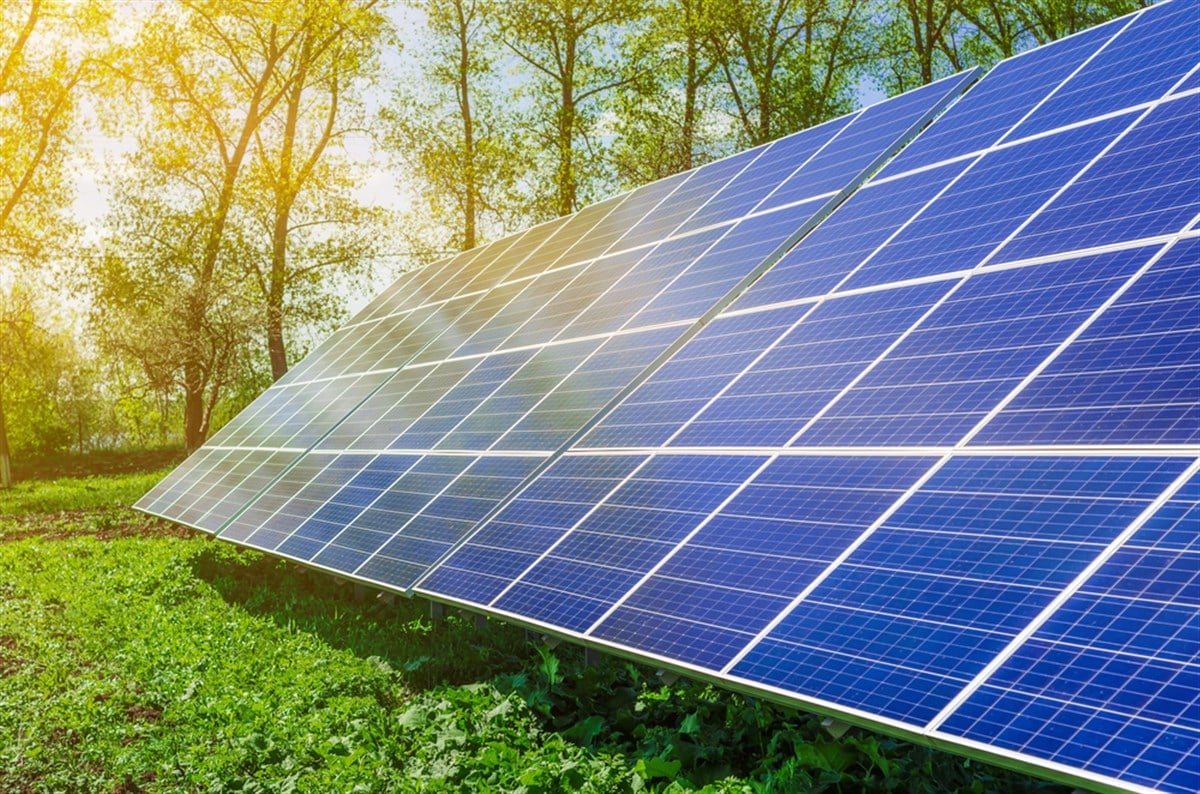
The U.S. added a record-breaking 32.4 gigawatts of solar electric generating capacity in 2023, evidence of the continued growth of the renewable energy industry thanks to strong customer demand, supportive government policies, and rapid advances in solar technology. A long-term shift in the energy sector toward decarbonization through green energy sources is well underway and likely to continue for years to come.
In addition to the environmental advantages of solar energy, there is potential for investors to capitalize on a secular shift in the make-up of the energy sector more broadly. Selecting from the large pool of solar stocks is a difficult prospect, though, particularly as the market continues shifting and companies strive for dominance.
First Solar Inc. (NASDAQ: FSLR) is one of the largest companies in the solar space at just under $24 billion in market value. With over $1 billion in sales and a net income of almost $350 million in the most recent quarter, First Solar provides a benchmark for smaller, up-and-coming solar companies seeking to emerge as major players. Two such firms—Daqo New Energy Corp. (NYSE: DQ) and JinkoSolar Holding Co., Ltd. (NYSE: JKS)—reported earnings in the last week of August, allowing for a direct comparison. Unfortunately, both of the smaller companies face significant challenges, as revealed in their recent financials.
Daqo New Energy: Losses, Declining Sales and Prices
Chinese polysilicon component maker Daqo New Energy primarily sells its products to other solar manufacturers. As such, when the broader solar industry faces external challenges like oversupply, Daqo is particularly impacted. Market prices across the industry fell in the second quarter due in part to an inventory glut, in some cases to levels below production costs—as a result, Daqo's inventory market value fell below book value, and it recorded an inventory impairment expense of $108 million.
The impact of this unique expense on Daqo's broader financials for the quarter was significant. For example, the company reported net loss attributable to shareholders of just under $120 million as a result, worse than analysts expected, as well as gross losses of $159 million compared with gross profit of $72 million in the first quarter of the year.
Despite the impact of the impairment in the latest quarter, Daqo's bottom-line struggles are persistent. The company has failed to beat consensus earnings per share estimates each quarter for the last year. And despite an average polysilicon selling price of $5.12 per kilogram, down more than $2.50 from this time last year, Daqo's sales volume declined by more than 20% over that time period as well. These figures suggest deeper issues that have likely been exacerbated by industry-wide challenges in recent months.
JinkoSolar: Revenue Sluggish, Shipments Grow
Like Daqo, JinkoSolar posted net losses for the second quarter as a result of oversupply and low prices across the industry. The firm reported net loss of almost $14 million, or diluted loss per American depositary share (ADS) of $0.29. Revenue growth was up 4.4% sequentially but down almost 22% year-over-year.
In contrast to Daqo, however, JinkoSolar's shipments and demand continue to surge. The company reported year-over-year module shipments growth of more than 34%, with total quarterly shipments up 36% over the same period. This rapid improvement made it possible for JinkoSolar to become, during the second quarter, the first solar module maker to deliver a total of 260 GW solar modules. Newly added installations in China helped to drive this growth, but the company also experienced substantial growth of around 20% year-over-year in its total solar module exports.
All of this suggests that JinkoSolar's product lineup and positioning may help to it rebound along with the broader industry more quickly than a rival like Daqo.
How do Daqo and JinkoSolar Stack Up?
Based on recent reports, neither Daqo nor JinkoSolar has approached the success of First Solar. The largest of the three companies maintained profitability at a time when smaller competitors were stuck navigating excess inventory and historically low prices. In the short term, First Solar may be the stock for investors to watch most closely. However, the rapid growth in demand for JinkoSolar's products makes it a worthwhile company to keep an eye on, and Daqo's position could quickly change if there is a broad increase in prices industry-wide.
